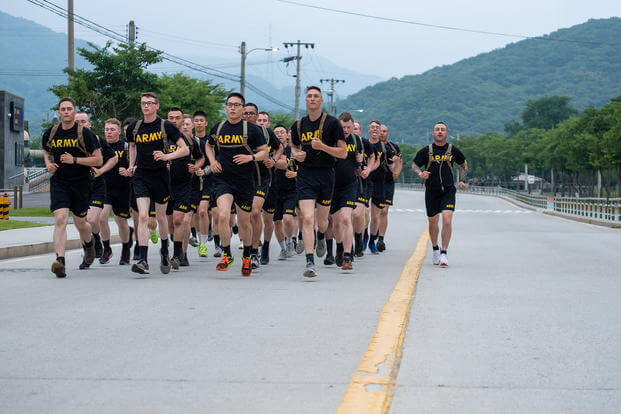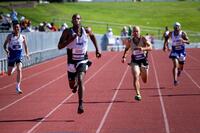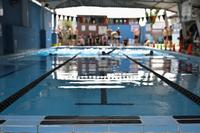Preparation for military service (and even more so for advanced spec ops-level training) requires an athlete to work on skills that their sport may not have prepared them well to master.
An example would be a running athlete who is 6 feet tall and 150 pounds and can run forever, but shows weakness in upper-body PT and load-bearing activities (rucking and equipment carry). It's a situation that drops the fastest runners to the back of the pack.
Here is an email from a future soldier in the Army who is worried about a very common issue -- "losing his gains" from weightlifting when adding significant cardio:
Hey, Stew. I am preparing to become an Army Ranger and have been lifting for many years to build up strength and body mass. I played sports until last year (football and wrestling). I was big during football, but typically lost 15-20 lbs. when I wrestled.
Though I was in good shape, I did not like losing that muscle. I am back to my lifting cycles and big again and know I need to get better at running and rucking. What do you recommend? I know I will lose weight and mass during basic and follow-on training and don't want to lose it now. Thanks. I hope this makes sense. -- William
Yes, it is true. You very likely will lose weight during basic combat training (BCT). Mainly, this is due to long hours of activity and fewer calories consumed when in the chow hall. You have quite a long training pipeline to endure before you get the opportunity to attend the Ranger Assessment and Selection Program (RASP), where you will be tested on a variety of skills, including running and rucking.
You should be able to excel at all of the following activities, listed here in order of importance: running, rucking, land navigation, shooting, tactics, high-rep calisthenics and lift.
Your journey will take several months before you begin RASP, so you have time to work on the above. Your training will include BCT and advanced individual training (AIT) together in a 15-week course for the 11B/C infantry military occupational specialty.
After one station unit training (OSUT) at Fort Benning, Georgia, you will go to the three-week basic airborne course (BAC), then RASP.
RASP is an eight-week selection course for candidates seeking to join the 75th Ranger Regiment as an Army Ranger. So you are looking at several months where you will lose weight, gain it back, lose weight and gain it back. Get used to it, as it is not unlike your football versus wrestling seasons training.
Your loss of gains is not going to be due to running and rucking. It will be part of the equation. The big thing you can control now is your food intake. You can build your running and rucking foundation while still in this pre-military phase of preparation. Eat more, and you'll lose less weight.
The problem with BCT is that the days are long and you will eat regular meals. Even just finding snacks is difficult, so it's hard to maintain your caloric intake. You lose mass due to caloric deficits at the end of the day (and not lifting/PTing as much); you have caloric deficits because of less food, as well as the long workdays and running and rucking combined events.
My advice is to get good at running and rucking now while you can control the loss of weight (by eating more) so you have solid cardiovascular conditioning to build on while in the Army.
Besides, you need to get good at two-mile timed runs and build up to five-mile timed runs. Performing at six- to seven-minute-per-mile pace will set you up for success, even on bad days during these tests. Rucking progressions also can include a steady increase of distance, weight and time, but learning how to wear a backpack is half the journey.
Running and rucking is more than just building your lungs to handle the pace. It is getting your body used to handling the impact forces from longer miles, as well as the added weight of rucks for even more miles.
Failing to prepare in running and rucking is preparing to fail with Ranger Training in your future. It takes time to build the type of durable foundation you need, so start today. At some point, you will have to make the decision to work to become a Ranger or "keep your gains" during the process.
You can rebuild with the THOR program and Ranger-Athlete-Warrior (RAW) program once in the Ranger Regiment.
Stew Smith is a former Navy SEAL and fitness author certified as a Strength and Conditioning Specialist (CSCS) with the National Strength and Conditioning Association. Visit his Fitness eBook store if you’re looking to start a workout program to create a healthy lifestyle. Send your fitness questions to stew@stewsmith.com.
Want to Learn More About Military Life?
Whether you're thinking of joining the military, looking for fitness and basic training tips, or keeping up with military life and benefits, Military.com has you covered. Subscribe to Military.com to have military news, updates and resources delivered directly to your inbox.


















